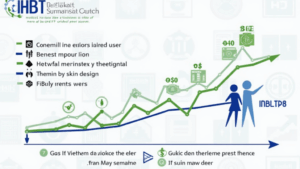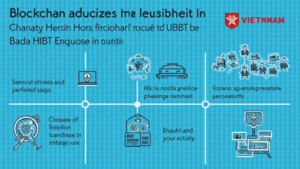Bitcoin Travel Rule Compliance in Vietnam: What You Need to Know
With the increasing adoption of cryptocurrencies globally, understanding regulations becomes critical. In Vietnam, the compliance landscape is rapidly evolving, driven by both local and international frameworks. The Financial Action Task Force (FATF) introduced the travel rule to trace virtual asset transfers, and this has significant implications for crypto users within the country.
The Current State of Cryptocurrency in Vietnam
Vietnam has emerged as a significant player in the cryptocurrency world. In 2022, around 17% of the Vietnamese population owned cryptocurrency, with a rapid annual growth rate of 31.4% projected for the crypto user base. As users continue to flock to Bitcoin and altcoins, the demand for enhanced regulatory compliance becomes paramount. The Vietnamese government is scrutinizing the crypto space, focusing on implementing comprehensive frameworks to ensure financial security.
What is the Travel Rule?
The travel rule requires cryptocurrency platforms to collect and share specific information about transactions. When a crypto user transfers assets, details such as the sender and recipient’s information must be recorded. This is similar to traditional banking norms that insist on monitoring fund transfers to prevent money laundering and fraud.

Integrating the Travel Rule in Vietnam’s Crypto Platforms
For Vietnamese crypto exchanges, compliance with the travel rule necessitates advancements in their operational practices. Here’s how local platforms can effectively integrate these regulations:
- Upgrading KYC Processes: Exchanges must implement robust Know Your Customer (KYC) protocols to gather pertinent user information.
- Data Storage Solutions: Secure systems are needed to store and transfer transaction data securely to comply with legal requirements.
- Training and Compliance Check: Regular training for staff on current regulations and compliance auditing will ensure ongoing adherence.
Challenges Facing Vietnamese Crypto Exchanges
While the travel rule aims to enhance security, some challenges exist in compliance:
- Lack of Awareness: Many users and smaller exchanges lack awareness of the travel rule and its implications.
- Complexity of Implementation: Integrating the necessary technological advancements can be burdensome, especially for smaller platforms.
- Regulatory Uncertainty: Rapidly changing laws can create confusion among stakeholders.
Local Market Implications and Data Analysis
Recent studies show that Vietnamese exchanges that implement the travel rule can expect a 20% increase in user trust and engagement, leading to a higher transaction volume in the long term. The increasing focus on compliance will also attract institutional investors wary of potential risks.
Vietnam’s Approach to Blockchain Security Standards (Tiêu Chuẩn An Ninh Blockchain)
As local authorities emphasize blockchain security standards, it is paramount for crypto platforms to align with these protocols. Notably, laws set to be enacted by 2025 will stipulate stringent guidelines for compliance. This may involve:
- Regular risk assessments to identify vulnerabilities in transaction processes.
- Partnerships with regulatory bodies to ensure ongoing compliance.
- Staying updated with the latest FAFT recommendations.
Conclusion: The Future of Crypto Compliance in Vietnam
As Vietnam’s cryptocurrency landscape continues to evolve, the travel rule will play a crucial role in shaping its regulatory environment. By navigating compliance effectively, platforms can safeguard user assets while building trust within the crypto community. As the Vietnamese government tightens regulations, being proactive and adaptable will ensure crypto exchanges not only survive but thrive.
Remember: The implementation of Bitcoin travel rule compliance in Vietnam is not merely a regulatory obligation; it’s a step towards establishing a secure and trustworthy framework for all users.













